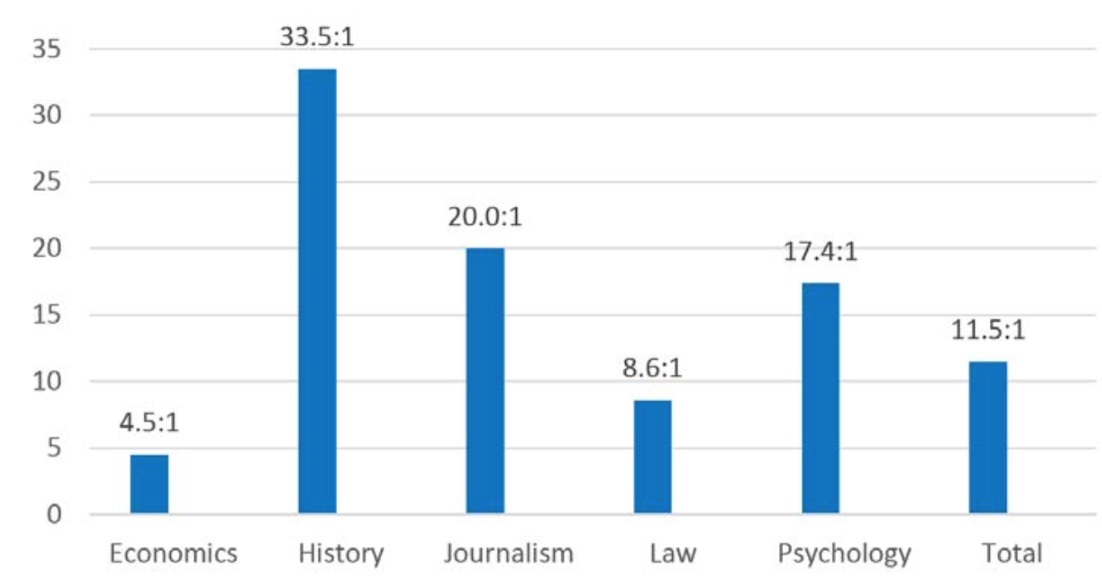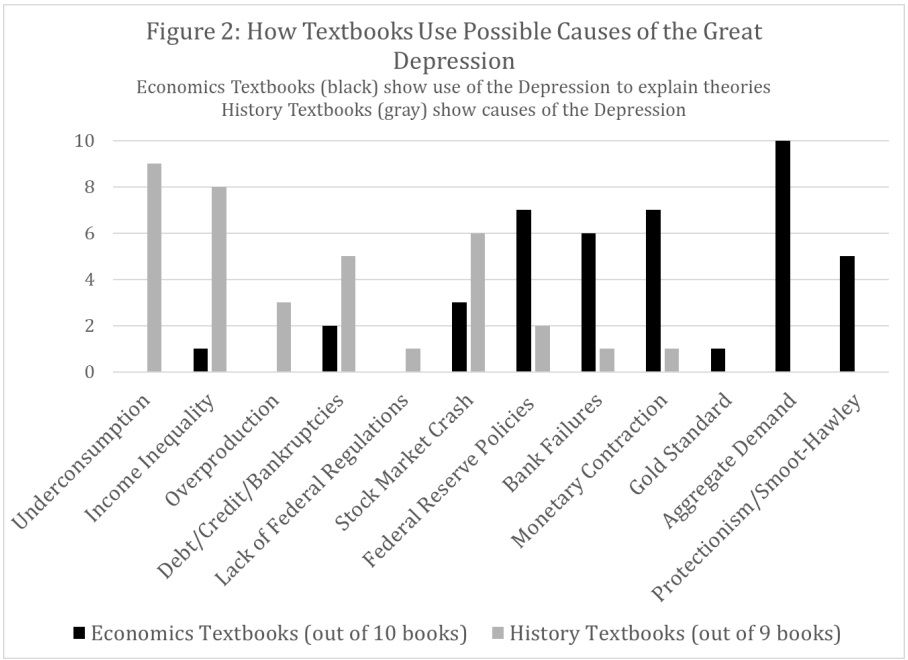January 2, 2024 by Dan Mitchell @ International Liberty
I have a multi-part series on why people shouldn’t trust economists (see here, here, here, here, and here).
I even wrote a tongue-in-cheek column asking whether economists were “Useless, Despicable, and Loathsome People.”
That being said, economists apparently are much more balanced than historians according to surveys of academics (though this is a typical example in higher education of comparing left-leaning to hard-left).
Let’s see why that makes a difference. Two economists (Jeremy Horpedahl and Phillip Magness) and a historian (Marcus Witcher) examined how college textbooks analyze and explain the Great Depression.
In their article, published by the Journal of Economics and Finance Education, they found that significant differences between economics textbooks and history textbooks.
The Depression is usually covered in two college-level courses: introductory economics…and US history survey classes. But the Depression is treated very differently in these two courses. According to the most recently available data, both courses rank among the top ten college courses taken in the United States, with around 40 percent of undergraduate students taking them at some point. For many students, perception of the Great Depression’s causes inform their views on business cycle events in the present. If the Depression is understood to illustrate a failure of free-market capitalism, this belief may shape a student’s views about the proper role of government in general economic policy decisions in addition to business cycle events. The market-failure view is common in college-level history textbooks. If instead the Great Depression is understood as a failure of government institutions to properly address a normal business cycle, the policy implications are much different. The government-failure interpretation of the Depression is much more common among economic historians.
Regular readers know that I’m in the government-failure camp. And if you want a brief summary of that view, watch this video.
But let’s keep the focus on the article. The authors included this chart showing the causes of the Great Depression, as identified by historians and economists.
Here are a few of my observations.
- I would have used some sort of term like “Keynesian theory” for both “underconsumption” and “aggregate demand,” so I don’t think economics and history textbooks are significantly different in that regard.
- I am shocked that historians completely ignore the impact of Hoover’s horrible protectionist trade policy.
- I’m also surprised that historians are fixated on income inequality, which is probably the biggest sign of the profession’s ideological bias.
- But I’m not surprised they largely overlook the role of monetary policy and the federal Reserve.
P.S. A big takeaway from today’s column is that college history textbooks leave something to be desired, but I’m sure they can’t be nearly as awful as Howard Zinn’s A People’s History of the United States, a tedious left-wing tract that is commonly used to brainwash high school students.


No comments:
Post a Comment